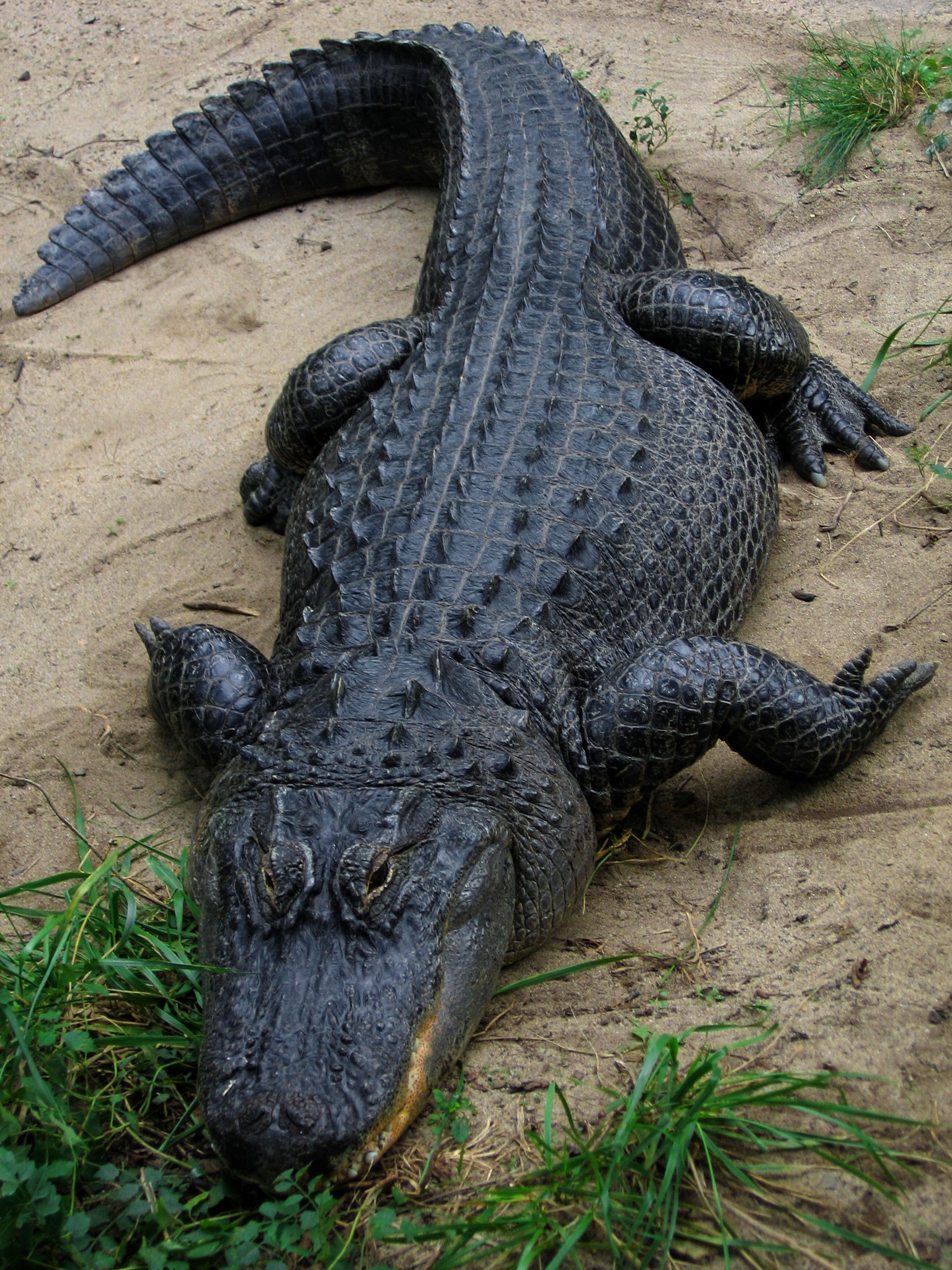Alligators are fascinating creatures that have captured the attention of people for centuries. From their powerful jaws to their scaly skin, there’s no denying that these reptiles are both fearsome and impressive. One question that people often ask about alligators is how much they weigh.
The weight of an alligator can vary greatly depending on its size and age. While a baby alligator may only weigh a few ounces, a fully grown adult can weigh as much as 1,000 pounds or more! In this article, we’ll take a closer look at alligator weights and explore some of the factors that can influence how much these reptiles weigh.
Alligators can weigh anywhere from 200 to 1,000 pounds, with males typically being larger than females. The largest alligator ever recorded weighed in at 1,011.5 pounds and measured 15 feet and 9 inches long.

How Much Do Alligators Weigh?
Alligators are fascinating creatures that have been around for millions of years. They are known for their strength, agility, and ferocity. But just how much do alligators weigh? In this article, we will explore the different factors that influence the weight of alligators and provide you with some interesting facts about these ancient reptiles.
Factors That Influence Alligator Weight
The weight of an alligator can vary depending on several factors. One of the most important factors is the age of the alligator. Young alligators typically weigh less than older alligators. The gender of the alligator can also play a role in its weight. In general, male alligators are larger than female alligators.
The habitat and diet of the alligator can also influence its weight. Alligators that live in areas with abundant food sources are likely to be larger than alligators that live in areas with limited food sources. Alligators that consume a diet rich in protein and fat are also likely to be larger than alligators that consume a diet with less protein and fat.
How Much Do Alligators Weigh?
The weight of an alligator can vary greatly depending on its age, gender, habitat, and diet. In general, adult male alligators can weigh between 500 and 1,000 pounds, while adult female alligators can weigh between 200 and 300 pounds. Young alligators typically weigh between 10 and 50 pounds.
It is important to note that there have been some alligators that have weighed much more than the average weight for their gender and age. The largest alligator ever recorded was a male alligator that weighed 1,011.5 pounds and measured 15 feet and 9 inches long.
Benefits of Understanding Alligator Weight
Understanding the weight of alligators is important for several reasons. For one, it can help researchers and conservationists better understand the health and well-being of alligator populations. It can also help hunters and wildlife managers make informed decisions about how many alligators can be harvested from a particular area.
Additionally, knowing the weight of alligators can help people appreciate the strength and resilience of these ancient reptiles. Alligators have been able to survive for millions of years because of their ability to adapt to changing environments and their impressive physical abilities.
Alligators vs. Crocodiles
Alligators and crocodiles are often confused with each other, but there are some key differences between the two. One of the biggest differences is their size. While alligators can weigh up to 1,000 pounds, crocodiles can weigh up to 2,000 pounds.
Another difference between alligators and crocodiles is their habitat. Alligators are typically found in freshwater habitats, while crocodiles are found in both freshwater and saltwater habitats. Crocodiles also have a more V-shaped snout, while alligators have a wider, U-shaped snout.
Alligator Weight and Human Interaction
Alligators are powerful animals that can pose a threat to humans if they feel threatened or cornered. It is important for people to understand the weight and behavior of alligators in order to avoid dangerous situations.
If you encounter an alligator in the wild, it is important to keep a safe distance and avoid approaching the animal. It is also important to never feed alligators, as this can cause them to lose their natural fear of humans and become more aggressive.
Conclusion
In conclusion, the weight of alligators can vary greatly depending on several factors. Adult male alligators can weigh between 500 and 1,000 pounds, while adult female alligators can weigh between 200 and 300 pounds. Understanding the weight and behavior of alligators is important for researchers, conservationists, hunters, and anyone who may encounter these powerful animals in the wild. By respecting the natural habitat and behavior of alligators, we can better appreciate their strength and resilience as a species.
Frequently Asked Questions
Here are some common questions people ask about alligators.
What is the average weight of an alligator?
The weight of an alligator varies depending on its age and gender. Adult male alligators can weigh up to 1,000 pounds, while adult females can weigh up to 200-250 pounds. The average weight of a mature alligator is around 500 pounds.
Alligators continue to grow throughout their lifetime and can live up to 70 years in the wild. The largest alligator ever recorded weighed 1,043 pounds and was 14 feet long.
How does an alligator’s weight affect its behavior?
An alligator’s weight affects its behavior in a number of ways. Larger alligators tend to be more dominant and aggressive, especially during mating season. They will also require more food to sustain their size and energy levels.
Smaller alligators are typically more timid and will avoid confrontations with larger alligators. They may also be more agile and able to move quickly on land or in water.
What factors can affect an alligator’s weight?
An alligator’s weight can be affected by a number of factors, including its diet, habitat, and activity levels. Alligators that live in areas with abundant food sources may grow larger and weigh more than those in areas with fewer resources.
Additionally, alligators that are more active and move around more may burn more calories and weigh less than those that are more sedentary. Environmental factors, such as temperature and water levels, can also impact an alligator’s weight and overall health.
How do researchers weigh alligators?
Researchers use a variety of methods to weigh alligators, depending on the size and temperament of the animal. One common method is to use a scale and a sling to lift the alligator off the ground and get an accurate weight measurement.
In some cases, researchers may also use non-invasive methods such as remote cameras or drones to estimate the size and weight of alligators in the wild.
What is the heaviest alligator ever recorded?
The heaviest alligator ever recorded was caught in Alabama in 2014. It weighed 1,011.5 pounds and was 15 feet long. The alligator was caught by a team of hunters who used a combination of harpoons, ropes, and a shotgun to bring it down.
The alligator was so large that it had to be transported on the back of a truck and could not fit in a standard-sized trailer. It is now on display at the Montgomery Zoo in Alabama.
How do you check an alligator’s weight? See how the North Carolina Zoo works its magic
In conclusion, the weight of alligators can vary greatly depending on their species, age, and gender. While the smallest alligators may weigh only a few pounds, the largest can exceed 1,000 pounds. It’s important to remember that alligators are powerful and potentially dangerous animals, and should be approached with caution and respect.
If you’re interested in learning more about alligators and their incredible size and strength, there are plenty of resources available online and in your local library. From documentaries to books, there’s no shortage of information on these fascinating creatures. Whether you’re a wildlife enthusiast or simply curious about the world around you, exploring the world of alligators is sure to be an exciting and educational journey.
In the end, it’s clear that alligators are one of the most impressive and awe-inspiring creatures in the animal kingdom. Their massive size and strength make them a force to be reckoned with, and their unique adaptations and behaviors have captivated humans for centuries. So if you’re ever lucky enough to encounter an alligator in the wild, take a moment to appreciate the incredible creature before you, and remember to respect its power and majesty.

